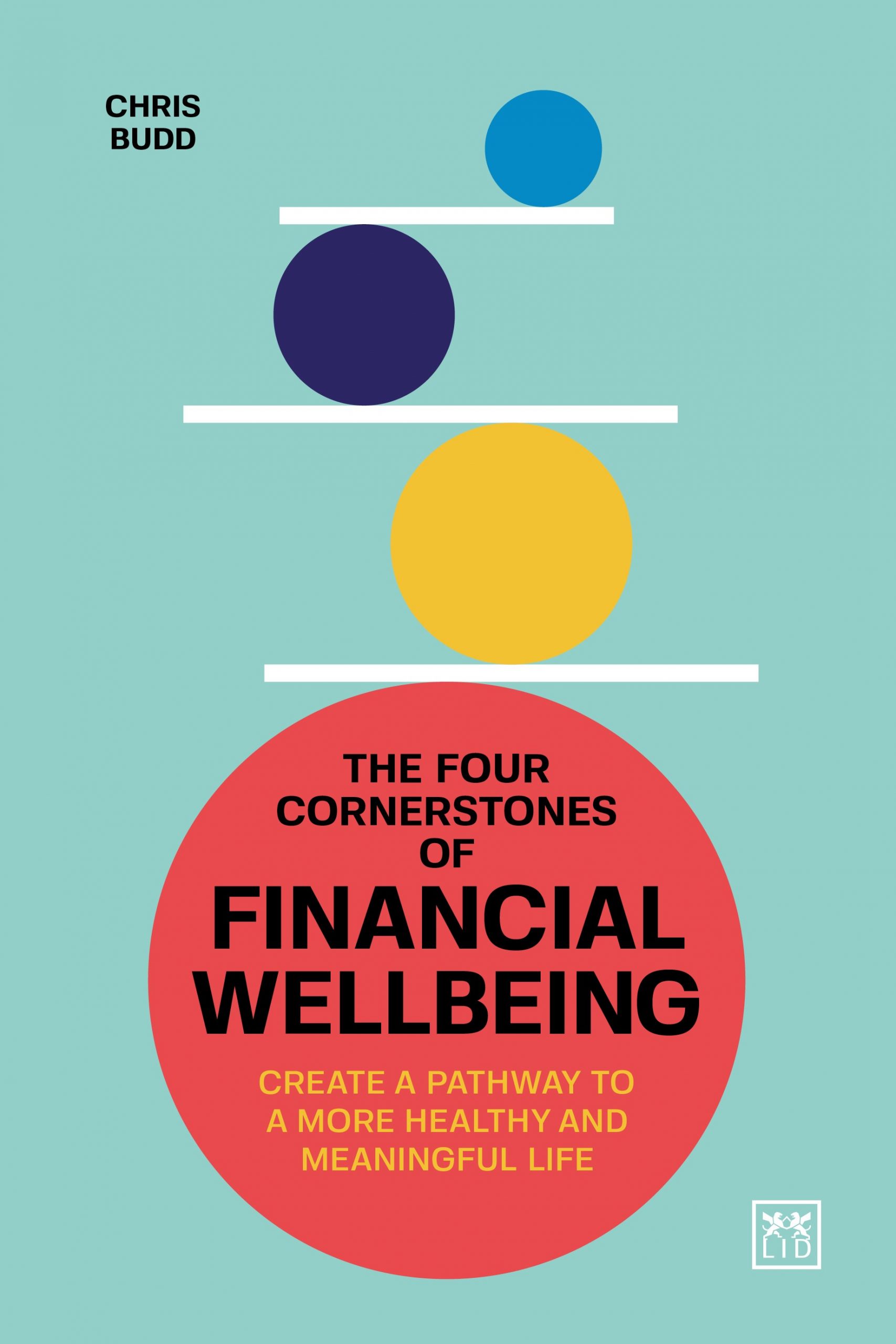I’ve really got to stop judging books by their covers – It’s becoming a trend – misinterpreting the content of the ones I volunteer to review. Apropos of this… Financial Wellbeing. Do what I did and you will expect a numbers-heavy tome that guides you through the intricacies of balancing the monthly household budget, saving for retirement and making sound money-orientated decisions.
It’s none of that. Chris Budd’s book: The Four Cornerstones of Financial Wellbeing is the money equivalent of Allen Carr’s eponymous The Easy Way to Stop Smoking. As I read it, I found myself smiling ruefully at every page – Budd’s gentle unpicking of just how bad most of us are at both spending money and understanding the myriad of reasons WHY we earn it in the first place really struck a chord with me.
The premise is simple – manage your finances in ways that create wellbeing in your life, rather than simply chasing targets, status, wealth or possessions (although, if they float your boat, and give you purposes… happy days). It sounds simple, but to get there, we’ve all got an awful lot of preconceived notions, bad decision-making approaches, gaps in our motivation and hair-triggers when it comes to spending. Like the Smoking book, they are presented as things we need to understand and overcome. Saying ‘spend wisely for a happy life’ just doesn’t cut it.
The four cornerstones – which, unusually, hardly feature in the book – opens up an exploration of the motivational and behavioural elements that guide our choices and assumptions about life. For those that like the science, there’s plenty of content that brings in theories and the biology behind these elements, along with stories and personal examples from the author that help to demonstrate the points being made.
For me, this book is a series of signposts. Anyone who’s read my other reviews will know that a recurring topic I bring up for books is the lack of depth – chapters that should have been whole books, pages that should have been chapters. And there’s some of this in The Four Cornerstones. For example, Budd highlights that only one in five of us know what makes us happy, but the practical actions section on purpose is only two pages long. Finish the book, and you’ll likely need to start two or three more to get to where you want to be.
Is that a deal breaker? Totally not. Budd himself talks about the book being ‘to bring together lots of research and ideas… into one cohesive treatise on the relationship between money and happiness’ (Note to the editor – that’s on the very second to last page… I do read them all the way through). Budd isn’t providing all the answers, just the structure by which we can all start to build better, more fulfilling lives through taking a more thoughtful approach.
Better yet, Budd puts a comprehensive further reading’ section at the end of the book. It’s super useful, and should probably be referenced more strongly at the start. It says to me that the author fully understands the complexity of what is being covered, and provides help and next steps to those who want to follow those ‘signposts’.
Don’t read this book if you need 10 practical tips on budget management (although the appendices do contain some). Don’t read it if you don’t want to face the denial you have about how you are earning and spending your money – keep on racking those cards up. But, If you have the sense that your life could be improved by rethinking some of your financial approaches, or that you want to make changes that let you follow a more purposeful and fulfilling life… then this is the book for you.
It won’t have all the answers, but it will have all the right, slightly uncomfortable questions to get you started.
Chris Preston is a culture expert and one of the founding partners of The Culture Builders









